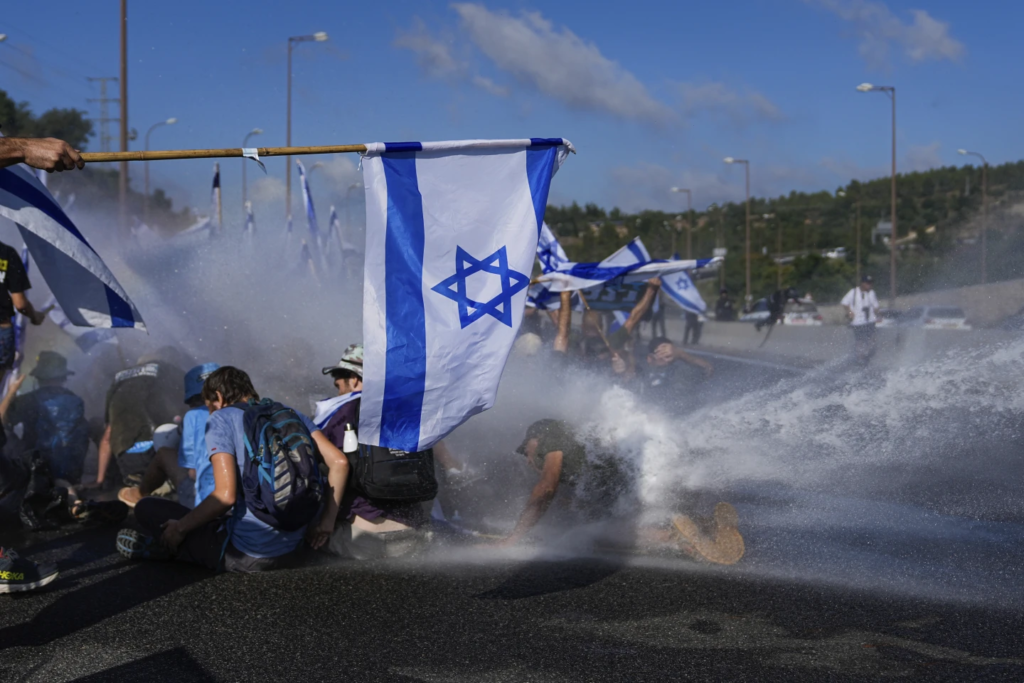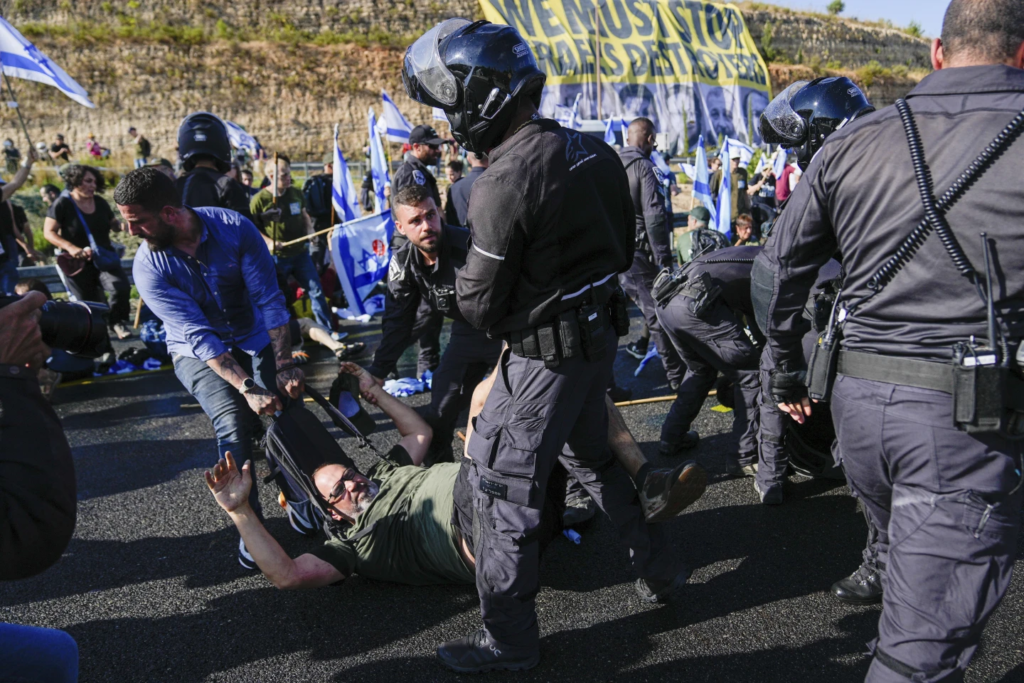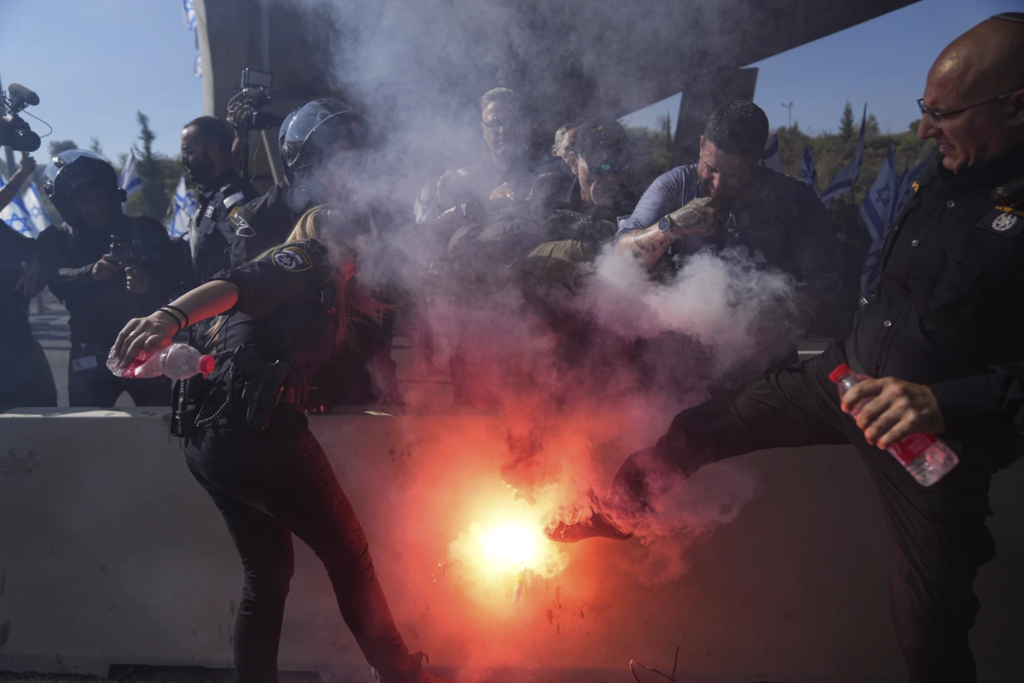In a show of opposition, Israeli protesters took to the streets across the country, blocking major highways leading to Jerusalem, Haifa, and Tel Aviv. The demonstrations, organized by anti-overhaul activists, come in response to the government’s planned judicial overhaul, which has caused significant division within the nation. The controversial legislation, approved by Prime Minister Benjamin Netanyahu’s parliamentary coalition, aims to limit the Supreme Court’s oversight powers, fueling concerns that it may pave the way for authoritarian rule.
The proposed bill, part of a series of legislative measures put forth by Netanyahu’s ultranationalist and ultra-Orthodox allies, has been met with sustained protests for months. Demonstrators argue that the reforms threaten the foundations of democracy in Israel. The widespread opposition led to a call for nationwide mass demonstrations, including potential disruptions at the country’s main international airport.


In a remarkable development, 300 reservists from the military’s cyber unit signed a letter expressing their refusal to volunteer for service. They cited the government’s efforts to undermine democracy and stated that sensitive cyber abilities should not be entrusted to a “criminal government.” The letter highlights the growing discontent among citizens who fear the erosion of democratic principles.
Police faced off with protesters, utilizing a water cannon to disperse those blocking a main artery leading to Jerusalem. Arrests were made as demonstrators obstructed highways, including one in Haifa, where a large banner proclaimed their determination to prevail. Amidst the unrest, the head of the country’s national labor union, Arnon Bar-David, warned of a potential general strike that could cripple the economy if the situation escalates further.
Critics of the judicial overhaul argue that it poses a threat to the delicate system of checks and balances, consolidating power in the hands of Netanyahu and his allies. The proposed changes grant greater control over the appointment of judges to Netanyahu’s associates and empower the parliament to overturn court decisions. A diverse range of individuals, including reserve military officers, business leaders, and members of the LGBTQ+ community and other minority groups, have united in the protests, underscoring the widespread concerns about the future of democracy in Israel.

As the nation grapples with these contentious reforms, the Israeli government faces mounting pressure to address the growing unrest and restore faith in democratic principles. The future implications of the proposed judicial overhaul continue to stir debate and division within Israeli society.

